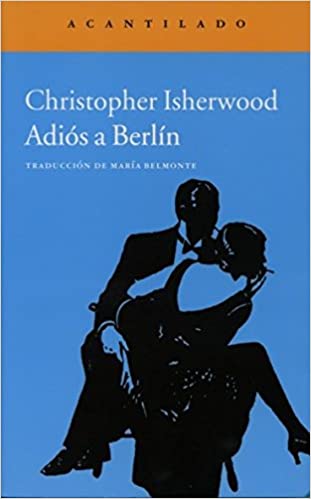The novelistic side of Christopher Issherwood It forms a round bibliography of ten works. And around her that kind of myth of the writer recognized later has been growing. It is not about an avant-garde of his time but about that capricious process of maturation of works that find a better fit when it is least expected.
It would have to see that weight of the biographical, of the discovery of the author with a background for the narrative sustained in his condition of traveler, of constant change, of search at the end of the day that moves to a work as crystalline in its form as it is transcendent in the scope of the experiences of its characters and in the approaches of its plots. Stories as reflections of whole lives.
Stories of the ephemeral living, of the essential temporary condition of everything, of clinging to aromas or memories as a condemnation to which only its characters can be replaced by throwing themselves back into the inscrutable future of life. Existentialism therefore of survival. A kind of Milan Kundera that does not delve into the answers but only probes the depths of the soul to close wounds, without more and without less.
Top 3 Recommended Novels by Christopher Isherwood
Un hombre soltero
There are things that are not chosen in life. In fact, the transcendent is never a dilemma from which each person marks their path. A complete annoyance that makes us believe in that destiny to which we hand over the definition of the chapters of our existence.
George Falconer, a middle-aged English professor, struggles to come to terms with the sudden death of his partner, Jim, in a car accident. The year is 1962, and despite the privileged life he leads in Los Angeles, his routine has become a painful reminder of the only thing that allowed him to endure the oppressive American dream: the loving intimacy in which he could behave spontaneously and release his feelings. of the disguises that society imposes on him.
But in addition, the loss abruptly confronts George with his age, with the passage of time, with his past and, ultimately, with the horizon of his own death. A Single Man is one of Isherwood's most acclaimed novels, which he considered his masterpiece, an original and extraordinary elaboration of the drama of existence in the contemporary world.
Goodbye to berlin
An idea about knowing how to say goodbye to those places where you were happy. And paradoxically it may take being brave enough to return to those dark landscapes of guilt and grief. Because any past space where unhappiness suffocates us ends up marking the present as an atavistic fear, a kind of agoraphobia because that place moves to meet us. Berlin had everything for the protagonist of this story. And the matter is even more complex when love and sorrow are concentrated in the same place.
Christopher, a young British man, rents a room in the German capital and teaches English for a living. This work and his curiosity as a budding writer will lead him to meet characters of all types and conditions, such as the wealthy Jewish heiress Natalia Landauer, the Nowak working family, Otto and Peter, two young homosexual men, or Sally Bowles, a young girl. English upper class, seductive and lost ??? who inspired the character of Liza Minelli in the famous film Cabaret ??. Farewell to Berlin is a revealing and emotional chronicle of the decadent and attractive Berlin of the Weimar Republic, over which the growing brutality of Nazism looms.
The Violet of the Prater
Dotted with autobiographical snippets, this novel takes us into a cultural movement facing the imminent darkening of the world facing Nazism. In 1933, while National Socialism triumphs in Germany, England confidently lives the echoes of the happy twenties, ignoring the winds blowing from the continent.
In London, the Imperial Bulldog film studios commissioned the young writer Christopher Isherwood to write the screenplay for a film, The Violet of the Prater, directed by the well-known Austrian-born film director Friedrich Bergmann. The relationship established between director and screenwriter and the incidents surrounding the shooting of the film trace a synthetic, ironic and powerful picture of the torn Europe of the moment.
The anguish of Bergmann, a Jew who has been forced to leave Germany and who has had to leave his family in an already threatened Austria, contrasts with the frivolity of the film he has to shoot and the film industry of the time and with the indifference of a part of Europe to the looming disaster. The contrast of these two points of view also allows a serious analysis of the relationship between art and life and the role of creators in turbulent societies.



